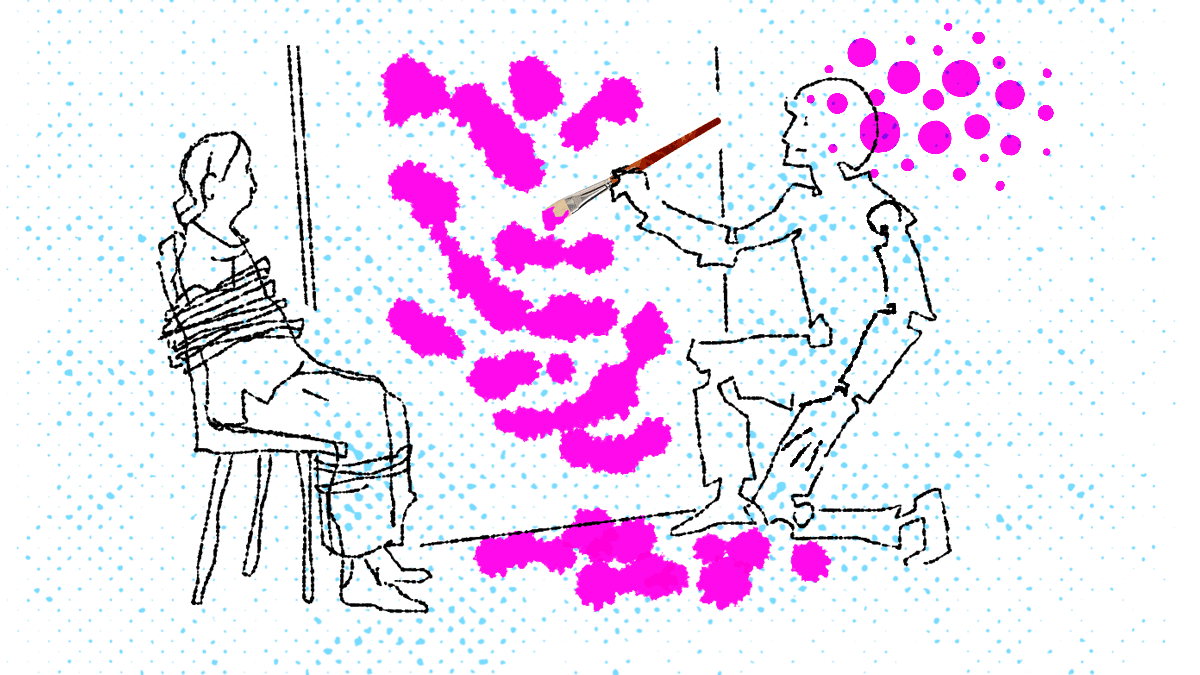 | « Back to article | Print this article |
The purpose for which AI should be used cannot be left to AI developers, asserts Vice Admiral Biswajit Dasgupta (retd).

Artificial Intelligence is the flavour of the times. It is supposed to be catalysing the new technological revolution.
Much has been written about how it will throw humans out of traditional jobs and the need to upskill and reskill so that humans do not get obsolete in ten years' time.
There are also scores of opinion pieces and articles about the importance of ethics in handling of AI and how AI lends itself to unethical use.
In the same breath, AI is also hailed as the messiah technology for speeding up data processing and facilitating the rapid development of other technologies through smarter algorithms and the like.
I have read several such articles with great interest and have repeatedly failed to understand why this 'phenomenon' is called Artificial Intelligence.
In fact, the pieces that I read on the subject (and I accept my ignorance of the deep meaning of AI) remind me of Amitabh Bachchan's singing My name is Antony Gonsalves as he emerges from the giant Easter Egg in a song sequence from the film Amar Akbar Antony in which he proclaims...
'You see, the whole country of this system is juxtapositioned by the haemoglobin in the atmosphere because you are a sophisticated rhetorician intoxicated by the exuberance of your own verbosity.'
Interesting and fascinating to somebody who has no appreciation of the English language but at the same time, baffling the daylights out of the unsuspecting movie-goer.
I get a similar feeling reading about AI. I am utterly impressed with the language and the jargon that flies about two miles over my head.
To be fair to the technology experts whose lives depend upon humanity's belief in AI, I must admit that perhaps all new technologies begin this way.
The initial days are more concept and hype and concrete use and demonstration of benefits come much later with accompanying reduction of hype.
In earlier days, people with new ideas and thoughts were often ostracised and even put to death for deviating from accepted ideas and beliefs. Thank God times have changed or else we may have been witness to mass AI graves.
There is a basic misunderstanding with AI that it seeks to replace Human Intelligence (HI) and that is what scares people.
Is it really so? Is it going to become that pervasive as to make the human race redundant?
It is my layperson understanding that AI cannot exist without HI. It will, at best, create better and smarter algorithms and be able to process huge amounts of data (it took me months to understand the meaning of Big Data) and assist in making computing-based technologies more efficient.
The challenge lies in not allowing humans specialising in AI to call the shots.
The purpose for which AI should be used cannot be left to AI developers. It has to be regulated by kings and philosophers -- in today's world, read leaders and States.
For this, there is a need for enlightened national and global governance and to avoid selling our souls to unbridled capitalism. At the same time, malicious use of AI must be ruthlessly curbed.
Despite AI and all other technologies to follow, basic human needs will endure.
Food, shelter, clothing, money, healthcare, education, sanitation and such aspects will remain fundamental to human existence.
I, for, one cannot imagine plumbers or cooks losing their jobs to AI and I certainly would think a few times to visit a restaurant that uses robots to cook or serve food and make polite conversation with guests.
Coming back to AI, I think HI demands that there be more concrete, informed and jargon-free discussion on the subject.
At the moment, writings on the subject for the layperson in newspapers and magazines remind me of Harry Belafonte's famous line...
It was clear as mud, but it covered the ground, and the confusion made me brain go around.
Vice Admiral Biswajit Dasgupta (retd) is a former commander-in-chief of the Indian Navy's Eastern Naval Command.
Feature Presentation: Ashish Narsale/Rediff.com